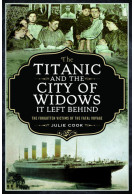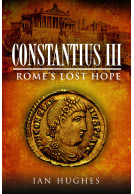The Trauma of Captivity (Hardback)
PoW Mental Heath
Imprint: Pen & Sword Military
Pages: 192
Illustrations: 32 black and white illustrations
ISBN: 9781399016827
Published: 7th June 2023
(click here for international delivery rates)
Need a currency converter? Check XE.com for live rates
| Other formats available - Buy the Hardback and get the eBook for £1.99! | Price |
|---|---|
| The Trauma of Captivity eBook (19.9 MB) Add to Basket | £6.99 |
The Trauma of Captivity seeks to shed new light on a forgotten aspect of what it meant to be a prisoner of war: their homecoming. With primary source archive content and interviews with family members of prisoners of war from the Second World War, as well as the diary entries of a prisoner of war from the First World War, this book asks the question: what happened to prisoners of war when they returned home?
Sons and daughters of returned prisoners of war share their harrowing stories of having a POW for a parent. The Trauma of Captivity also features a lengthy interview with modern-day prisoner of war John Peters, the RAF fast jet pilot who was captured when his Tornado plane crashed in the desert during the Gulf War.
The Trauma of Captivity focuses on what help and support was made available to returning prisoners of war and how they fought to rediscover their roles in society.
Rating: 5 out of 5 stars
NetGalley, Georgi Lvs Books
‘Men were starved, beaten, forced to work in labour camps and humiliated.’
While reading The Trauma Of Captivity by Julie Cook I discovered that my grandad was also a POW from 1941-1945 in a Changi jail.
‘Ex prisoners returning from the camps in the Far East would have seen more horrors than those held captive in Germany.’
Knowing that and then reading this book was quite emotional. I was already moved by what these men went through but to also know that my grandad went through this is very scary and sad.
Julie looks into what happened during and after the war when captivity ended for these POW. How these men coped, the help they were entitled to, and the consequences of not knowing a lot about mental health - depression, anxiety and post traumatic stress.
This is a very interesting but brutal read, and would be of interest to anyone who enjoys history and WW2.
“You are in hell now. I am the devil and I will provide the fire.” Commandant of the camp.
I am the daughter of a World War II POW. This book reinforced much of what I experienced as a child of a man who was not well understood. It gives first-hand accounts of former POW families and their experiences. One of the most interesting that I found was that if the returning POW had a supportive stable upbringing the chances were that he would have a stable return to freedom. If a POW was mistreated as a child and abused, leading to feeling inadequate prior to captivity that stability would be threatened when freedom was restored. Unfortunately, many of these men were raised during the Great Depression and their family lives were sometimes unstable. I appreciate the reinforcement of my experiences and the better understanding this book brought to me of my own father's experiences and what strength of will it took for him to overcome the anxiety, depression, and physical ailments that stayed with him for a lifetime as a result of his captivity.
NetGalley, Christy Martin
Rating: 5 out of 5 stars
NetGalley, Kyle Wendy Skultety
THE TRAUMA OF CAPTIVITY is a deeply thought-provoking and emotionally charged exploration of the psychological and emotional consequences of captivity. Written with remarkable insight and sensitivity, Cook delves into the harrowing experiences of prisoners of war (POWs) who have endured captivity in various contexts, shedding light on the lasting trauma they bear long after their physical freedom has been restored.
This book shows the profound impact that captivity has on the human psyche. It offers a compelling examination of the complex emotions, cognitive distortions, and adaptive responses that arise from the traumatic experience of being confined against one's will. For example: One of the effects of imprisonment is social degradation: the prisoner feels as if he is unable to make decisions for himself and he is deprived of the basic needs of life: food, freedom, and pleasure.
A POWs story can evoke sympathy, national pride, and jingoism. Despite the public’s feelings, many working-class soldiers had no help, no financial support, no job or home in place, and were lumped in with “pauper lunatics” and placed in asylums. These men could be committed for displaying anxiety, shell-shock, or turning to alcohol or violence. It took merely a single person’s word to send a man to the asylum.
One of the book's notable strengths is its emphasis on the psychological aspects of captivity. Cook goes beyond the immediate physical dangers and examines the complex psychological dynamics that emerge during prolonged periods of captivity. She explores the development of coping mechanisms, the erosion of self-identity, and the profound psychological wounds that individuals may carry long after their physical release. Men returning to home postwar were more likely to internalize their emotions, which compounded their mental health problems further.
Her nuanced analysis reveals the intricate interplay between captivity, trauma, and mental health, shedding light on the lasting scars that captivity can inflict on a person's psyche. Through extensive research, and interviews with the families of POWs, the author portrays the intricate web of emotions such as fear, helplessness, anger, and shame that often accompany the experience of captivity. Returning POWs who did seek out therapy were denigrated for their “weak” mental state, being told by doctors that their shell-shock was because there was evidence of weakness or instability in their nervous system. Is it any wonder that these men were not afforded the help they needed? After succumbing to the will of the enemy, their home country dismissed them as broken mentally even before they became soldiers.
By delving into these layers, the book offers a nuanced understanding of the psychological toll captivity takes on individuals, making it a valuable resource for both professionals in the field of psychology and general readers seeking insight into the human condition.
This book is not just a catalog of suffering; it is also a testament to human resilience and the potential for recovery. Cook devotes significant attention to the therapeutic interventions, support systems, and resilience factors that can aid in the healing process. She discusses the importance of trauma-informed care, the role of therapy, and the power of community in helping survivors rebuild their lives. Through these narratives of healing and resilience, Cook offers a sense of hope and inspiration, reinforcing the idea that it is possible to find strength and reclaim one's life even after enduring unimaginable adversity. Through the accounts of survivors, the author illuminates the ways in which they draw strength from their experiences and transform their pain into a catalyst for growth and healing. By doing so, the book instills a sense of hope in the face of unimaginable adversity, offering solace to those who have suffered and inspiration to those seeking to support and understand them.
Cook's clear writing style and her ability to translate complex concepts into accessible language make the book approachable and informative for both experts and general readers. The author's prose is accessible and engaging, allowing readers to connect emotionally with the narratives while also appreciating the scholarly foundation upon which the book is built. The chapters are organized in a logical and coherent manner, guiding readers through the complexities of captivity trauma without overwhelming them.
THE TRAUMA OF CAPTIVITY is an exceptional book that serves as an invaluable resource for understanding the profound impact of captivity on the human psyche. By combining rigorous research, insightful analysis, and compelling personal accounts, Cook has crafted a work that deepens our empathy, challenges our preconceptions, and inspires us to create a more compassionate world for survivors of trauma. It serves as a wake-up call to society, urging us to recognize the deep scars that captivity can leave, especially for POWs, and to foster an environment of empathy and support for survivors. This book is an essential read for anyone interested in World War II, psychology, human resilience, and the power of the human spirit to triumph over adversity.
About Julie Cook
Julie Cook is an author and journalist for national newspapers and magazines. Her first book The Titanic and the City of Widows it left Behind was published by Pen and Sword in 2020. Julie lives with her husband and children in Hampshire, England.

















